BedroomBedroom Feng Shui: Top Tips From A Master
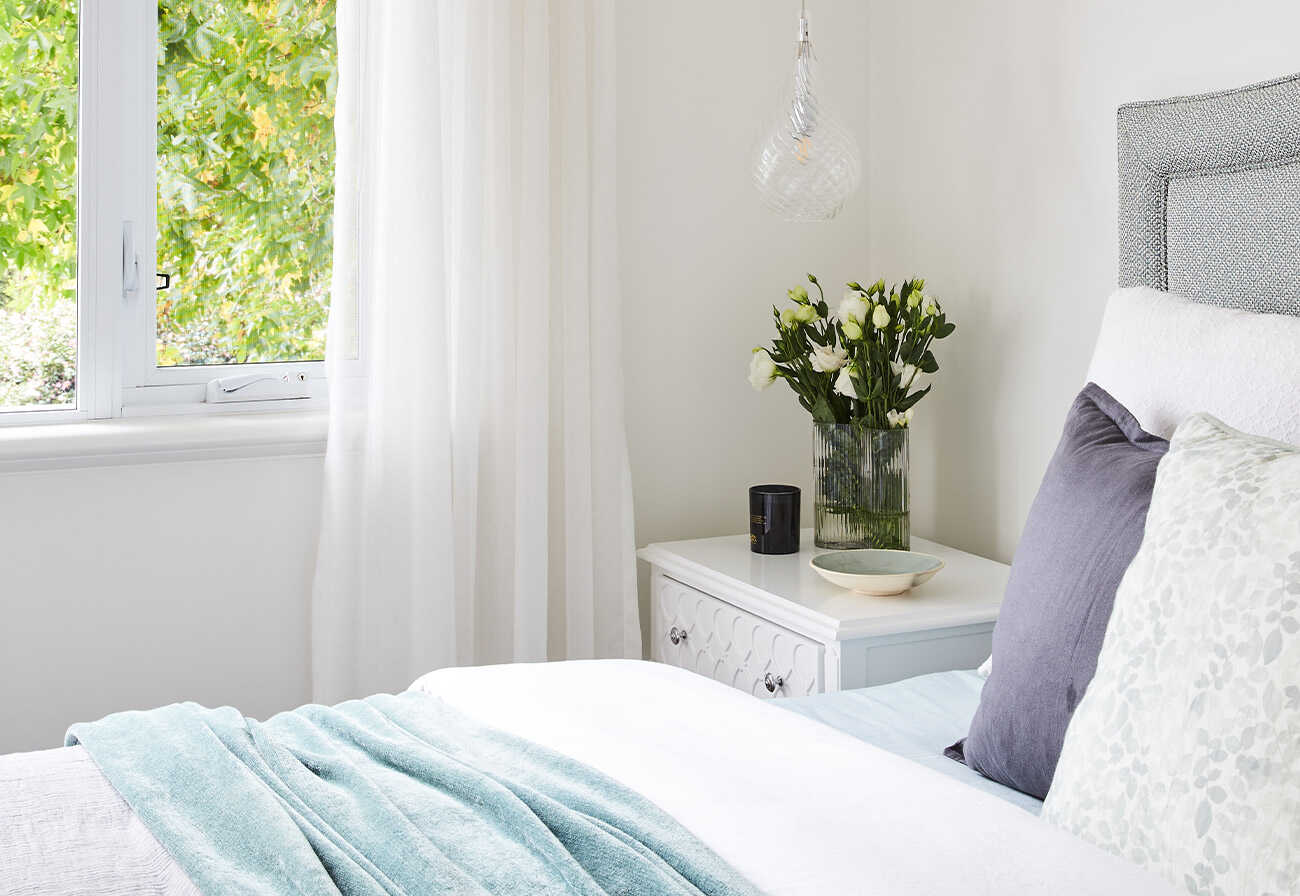
We spend more time in our bedrooms than in any other room in the house, so naturally, it should be a sanctuary. But if you’ve found that your room is lacking in positive energy and far from inviting, it’s time to take a closer look at your bedroom feng shui and learn how to get the balance back in the boudoir.
We’re thrilled to have teamed up with Jane Langof of Feng Shui Concepts to step you through all the dos and don’ts of bedroom feng shui. Find out what to do about mirrors, which colours to embrace and how to achieve the optimal balance of furniture and light for positive energy, wellness and a more restful sleep. And if you’d love to see how Jane applies feng shui to an entire home, check out the story of how she built Feng Shui House.
First, let’s take a closer look at what feng shui means and why it’s so important for our bedrooms.
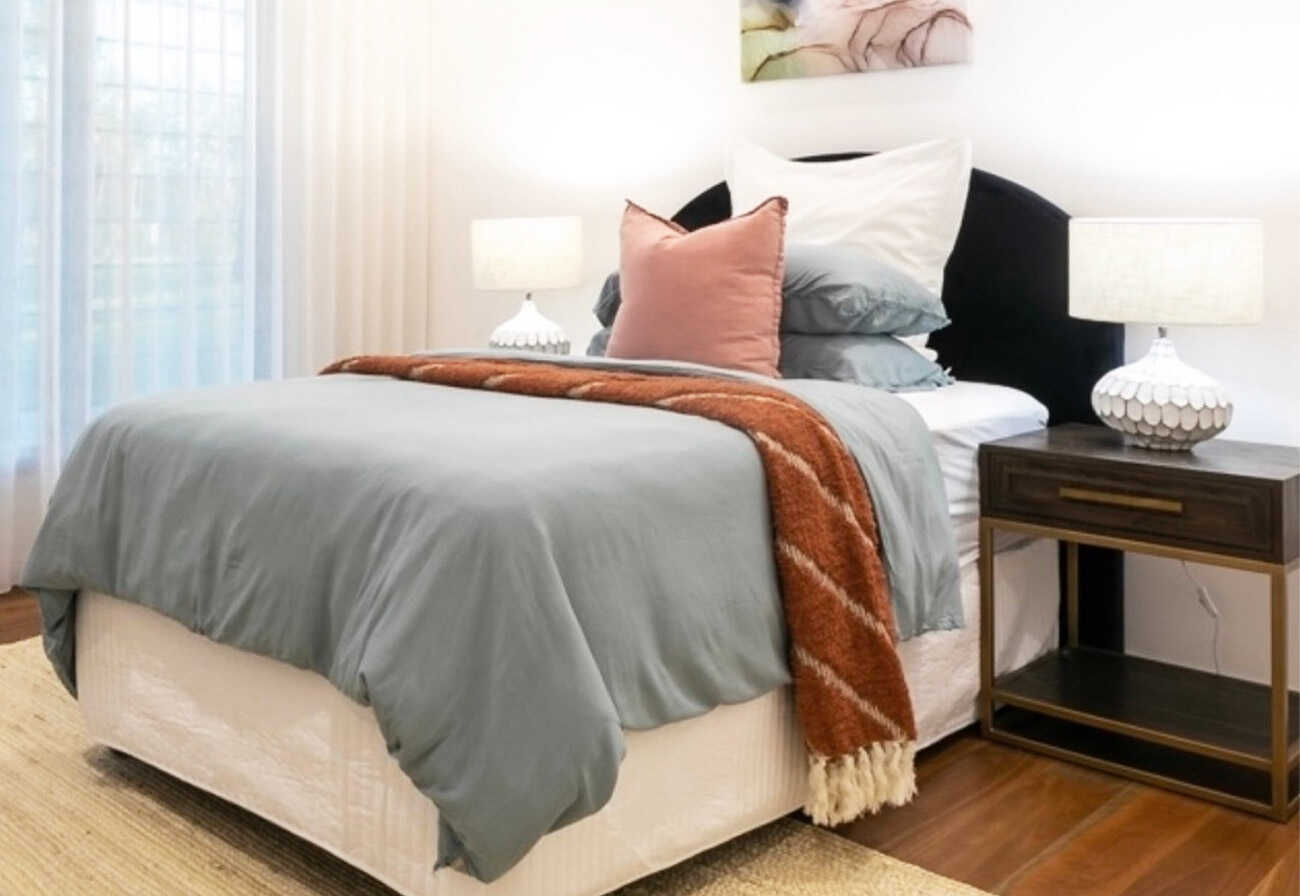
What is feng shui?
“Feng Shui is the art of balancing the elements in a space to create the optimal flow of energy. It is about your relationship with your environment and surroundings and how this impacts your mindset, moods and motivation. The energy in your environment affects the way you think, feel and act, and this impacts your health, wealth and luck.”
Jane Langof, Feng Shui Concepts
Feng Shui originated in China thousands of years ago when ancient Chinese masters discovered that different patterns of energy affected the human body and mind. They discovered that when people aligned with positive energy, they experienced periods of good fortune. And when they aligned with negative energy, they experienced misfortune and obstacles. From these observations came a defined set of rules, guidelines, and mathematical systems that form the basis of traditional feng shui.
And no, true feng shui is not based on superstition or religion.
A feng shui master will advise you on the best physical layouts of your spaces and calculate the energy map of your home. The energy map is like a horoscope that determines where the positive and negative energy sectors are found, along with the best directions for the occupants to face to optimise energy flow. This is unique for each home and based on the direction, building date, layout, and the occupants’ birth information.
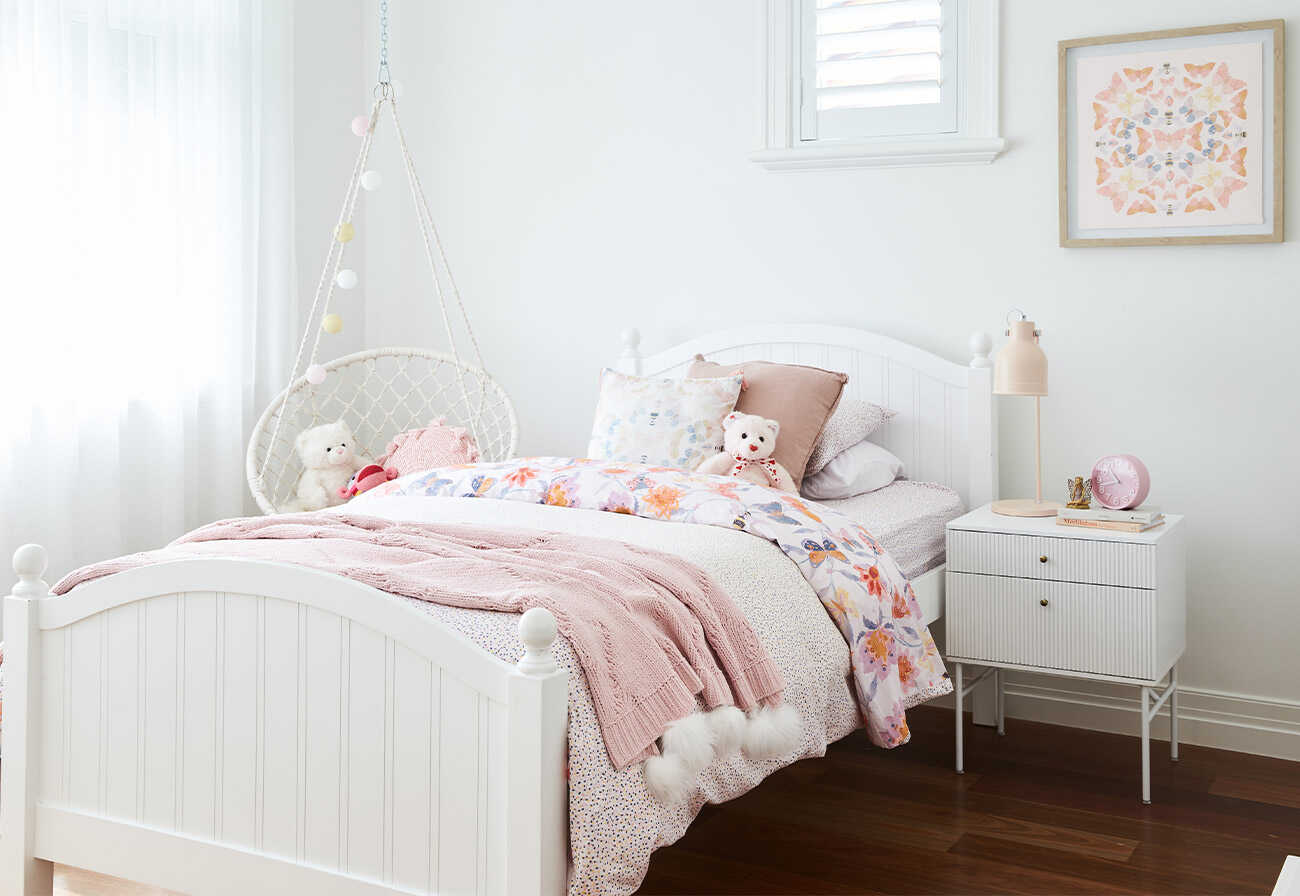
Why is feng shui so important for bedrooms?
Feng Shui is an ancient Chinese practice that aims to harmonise the energy in your surroundings, which is vital for your health, well-being, and relationships. The bedroom is one of the most important spaces in your home because you spend the most time there, absorbing the energy around you while you sleep.
A bedroom is more than just a place to sleep. It is a sanctuary for rejuvenation, connection, and intimacy. The layout and design of your bedroom impact your moods, state of mind, and overall health. Arranging the bedroom according to feng shui principles creates a balanced and calm environment that promotes relaxation, nurtures relationships, and leads to restful sleep. This can ultimately lead to better health.
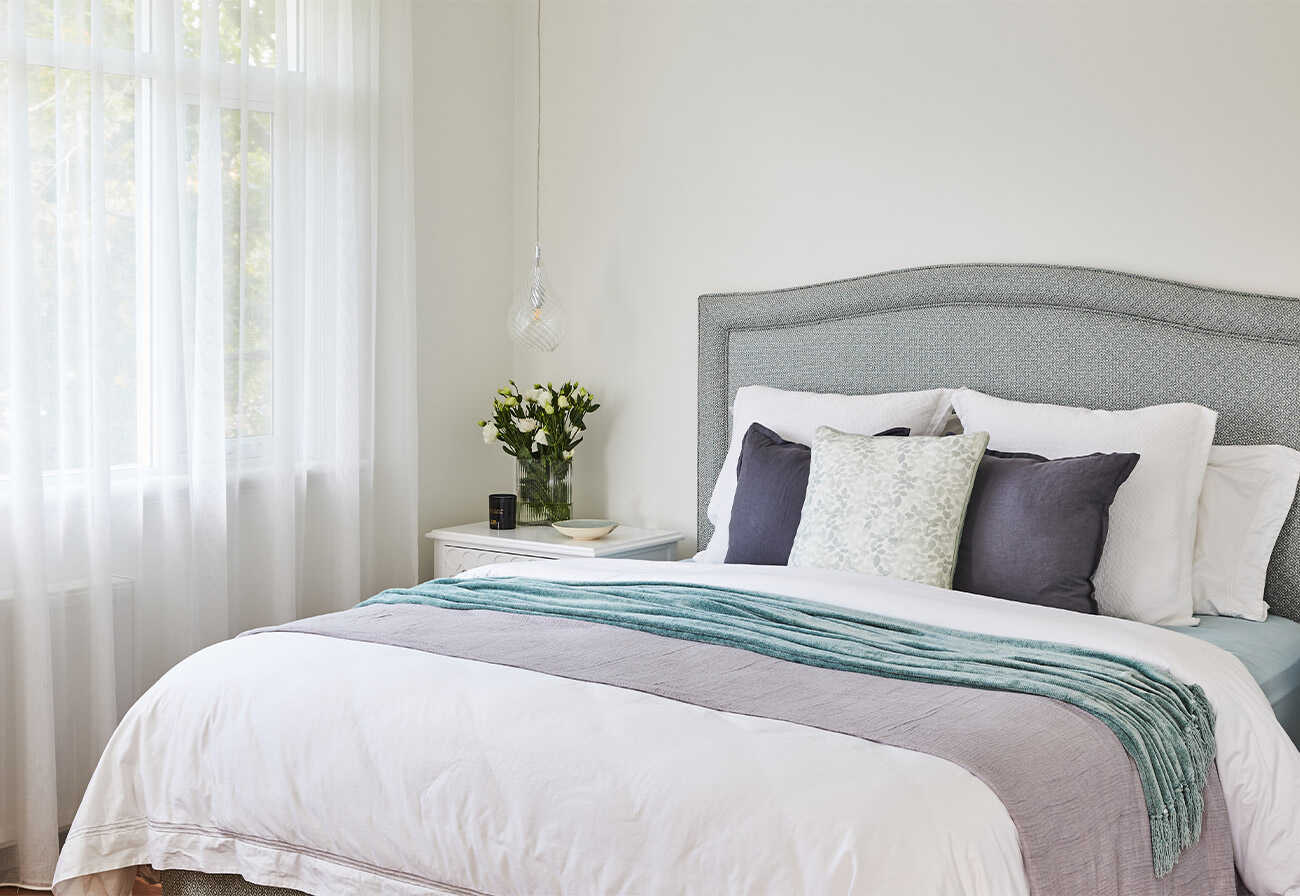
What’s the best feng shui layout for bedrooms?
The best location for your bed is in the space diagonally opposite the door, against a solid wall. This is the wealth corner of the room, where the energy is settled and contained. Having your bed against a solid wall is a “commanding position” that provides a sense of protection and support.
Do:
- Use multiple sources of lighting, such as dimmable overhead lights and bedside lamps. Opt for warm lighting in a bedroom rather than cool white light which will keep you awake. Ensure you’re able to darken the room for optimal sleep (for example, with blockout curtains or blinds).
- Incorporate natural materials like linen and wood. These elements foster a connection to nature and promote a calm atmosphere.
- Keep your bedroom free of unnecessary items to maintain smooth energy flow – remember, clutter is the enemy of feng shui!
- Keep under-bed storage to a minimum; only store neutral items like clean linen, which have a minimal impact on your energy.
Don’t:
- Position your bed in direct alignment with the door! This is known as the ‘coffin position’ because of the resemblance to how coffins are placed in a temple or church. Also, avoid aligning your bed with the ensuite door. If either layouts are unavoidable, keep the doors closed while sleeping.
- Place your bed under large windows as energy will be drawn away from you as you sleep. If there is no option but to place your bed against a window, ensure that you have thick window coverings and a solid, upholstered bed head. This will help to contain the energy around you.
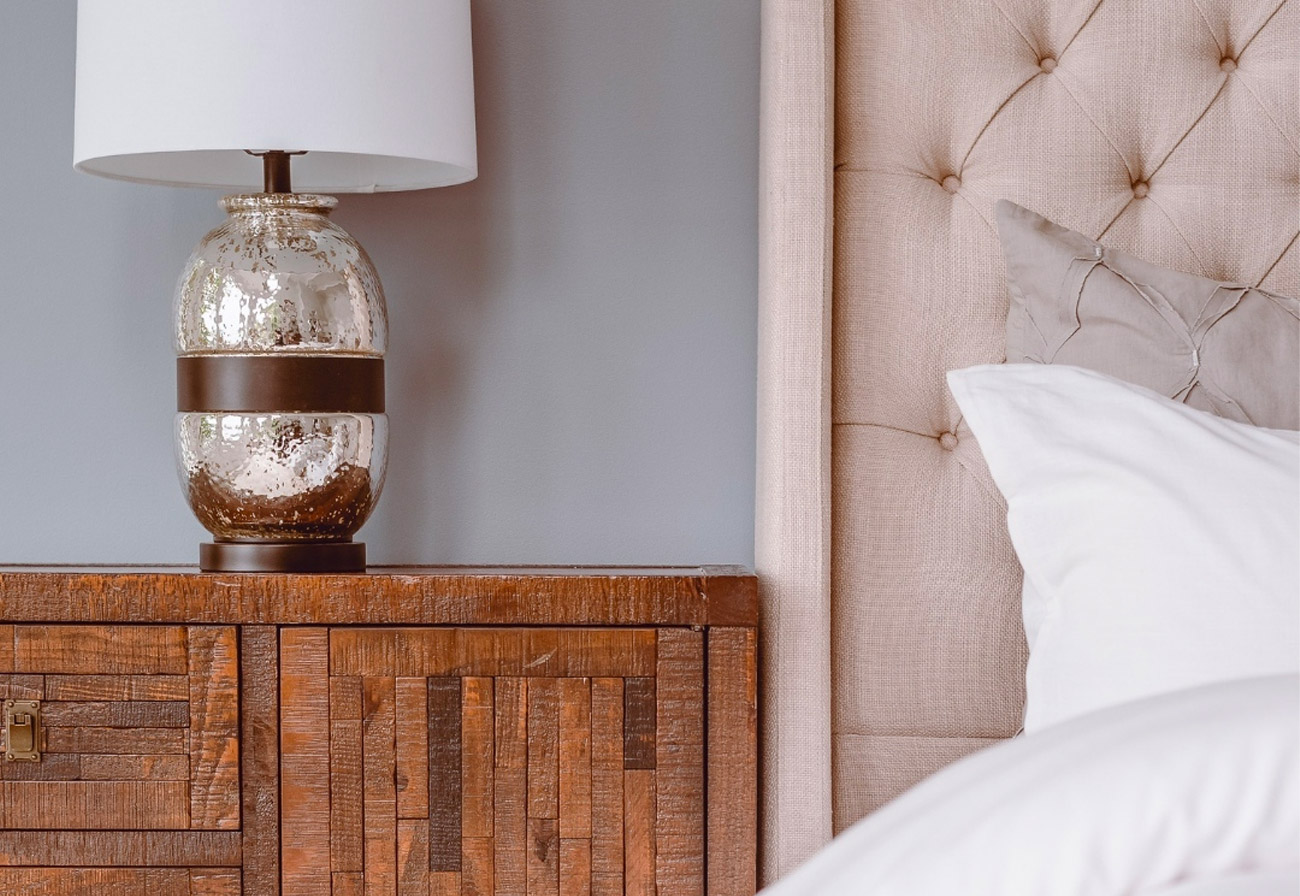
What about mirrors?
Mirrors are considered unfavourable in bedrooms when they reflect the bed, as this symbolically reflects conflict and unresolved issues between partners. Bedroom mirrors also raise energy levels in spaces that should be restful and yin. I advise tucking mirrors away from the view of the bed, where you are not forced to see your reflection, such as behind a wardrobe door.
If you have mirrored robes reflecting the bed that cannot be changed, try covering them while sleeping. This can be achieved with a sheer curtain drawn across the mirrors at night.
Are some bedroom colours better than others for feng shui?
The best colours for a bedroom are peaceful colours inspired by nature. Think duck egg blue, soft greens, warm whites, and muted pink. Calming neutral tones with gentle accents create a soothing environment. Bright, intense colours such as red are best avoided as they can be too stimulating.
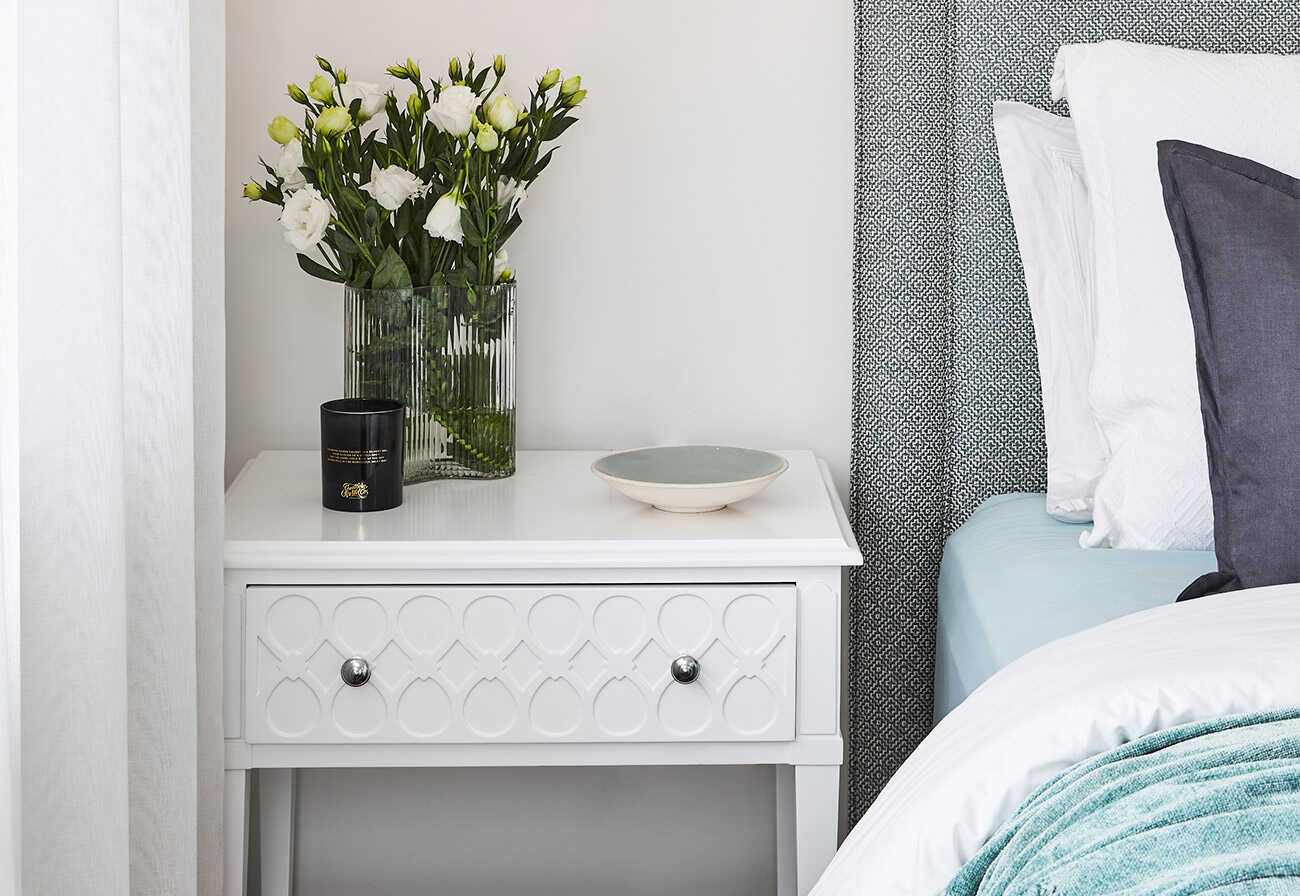
How to choose artwork for good feng shui in bedrooms?
Select artwork that brings a peaceful and positive vibe into your bedroom. It’s important that you love the artwork, and if you share the room with a partner, they should like it as well.
There are many different options to choose from that can work from a feng shui perspective. I like abstract paintings with curved and flowing organic shapes, floral-inspired artworks, and botanical scenes. Avoid pictures of water scenes, especially stormy oceans, as they can be too active for a bedroom. Lightweight canvas paintings above a bed are preferable to heavy-framed artworks.
Avoid violent scenes, pictures of weapons, wild animals, images of lonely single people, and anything that looks threatening or makes you feel cold or insecure.
The energy map of your home is the inspiration for the best colours to use in your home. The map relates to elements required in the space, as advised by a feng shui master.
What to avoid when it comes to good energy flow
Avoid displaying anything that brings about negative feelings, such as unwanted gifts and objects you don’t like.
Go easy on electrical items and devices in your bedroom. Take note of what is on the other side of your bed head wall. If it is an electrical meter box, move your bed away, as it emits high electromagnetic fields, which can negatively impact your sleep quality and health.
“Active objects like televisions, water features, and fish tanks represent yang energy and are best kept in living spaces. They disrupt the peaceful energy needed for rest and relaxation.”
Jane Langof, Feng Shui Concepts
Avoid clutter in your bedroom as it creates obstacles, represents worry, and leaves little room for new opportunities to enter your life. Consider whether your belongings represent you or whether they are better given to others in need. If clearing clutter seems overwhelming, start the process slowly, focusing on the areas close to you, such as bedside drawers. This will have the greatest impact on your energy and motivate you to clear more clutter.
Avoid decorating with large expanses of the colour red as the energy is too intense for a bedroom and can amplify negative energy in a space.
This article was contributed by feng shui master, Jane Langof of Feng Shui Concepts. Jane loves helping people create dream homes that inspire abundance. Head over to Feng Shui Concepts to download Jane’s top 10 tips for creating an abundant home – and don’t forget to follow her on Instagram!
Ready to fill your bedroom with the perfect pieces? Head over to our shopping guides and discover Australia’s most-loved decor and furniture.